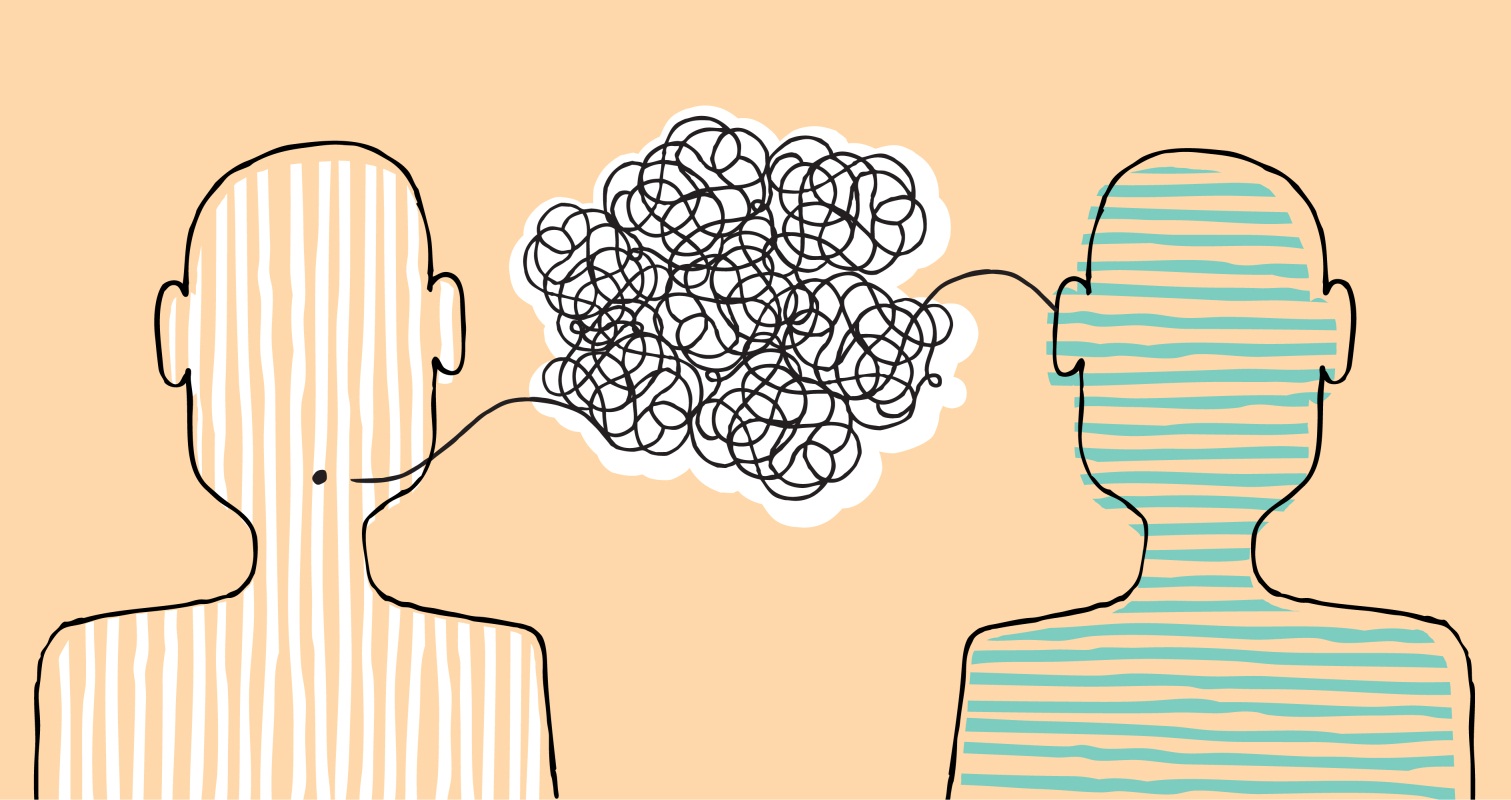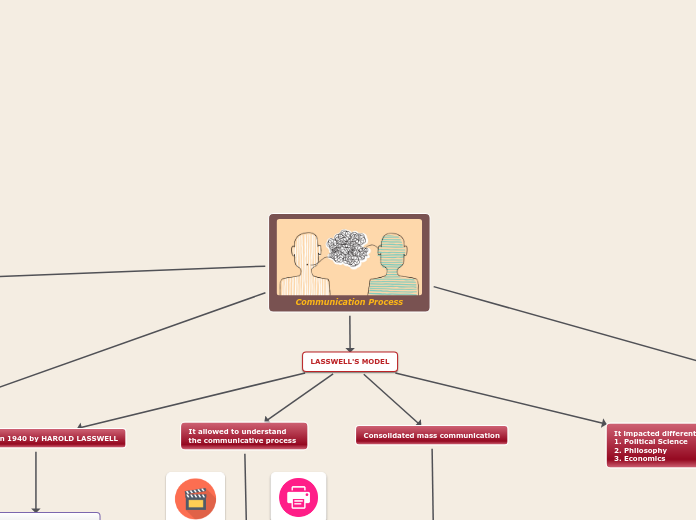
Communication Process
LASSWELL'S MODEL
Developed in 1940 by HAROLD LASSWELL
Reduce communication gaps
Between civil society and government
COMMUNICATION ANALYSIS LEVELS
It allowed to understand the communicative process
Unilateral communication
Global events
It is composed by:
Connectivity and society
Recent events
Consolidated mass communication
Purposses
Inform
Interpret
Impact
It impacted different disciplines such as:
1. Political Science
2. Philosophy
3. Economics
CASTELLS' MODEL
The network society
Conectivity
Mass self-communication
Mass communication
Self-generated message
Media Autonomy
Dimensions of autonomy
Individual
Corporate
Professional
Communicative
Socio-political
Physical
COMMUNICATION BARRIERS
Semantic barriers
From the speaker
From the listener
Psychological barriers
Emotional states
Prejudices also play a causal role
Physiological barriers
States that alter communication:
Drunk
Deranged
Confused
Physical barriers
Information overload
Loss of information
Lack of planning
Semantic distortions
Impersonal communication
Administrative barriers
HOW TO DETECT THEM?
Tone of voice
Non-verbal language
The way of expressing oneself
HOW TO OVERCOME THEM?
Clarify
Ask
Empathize
Active listening
Verify
Etc.
Communication Ability
Benefits
Helps to resolve differences
Helps to promote confidence
Impact of this abiliity
In personal relationships
Career success
In our self-esteem
Basic communicative abilities
Active listening
Empathy
Emotional validation
Verbal language
Non-verbal language
Read and write
Respect
Persuasion
Credibility



